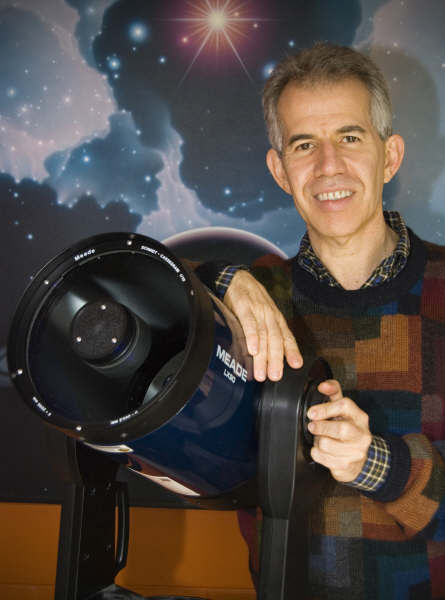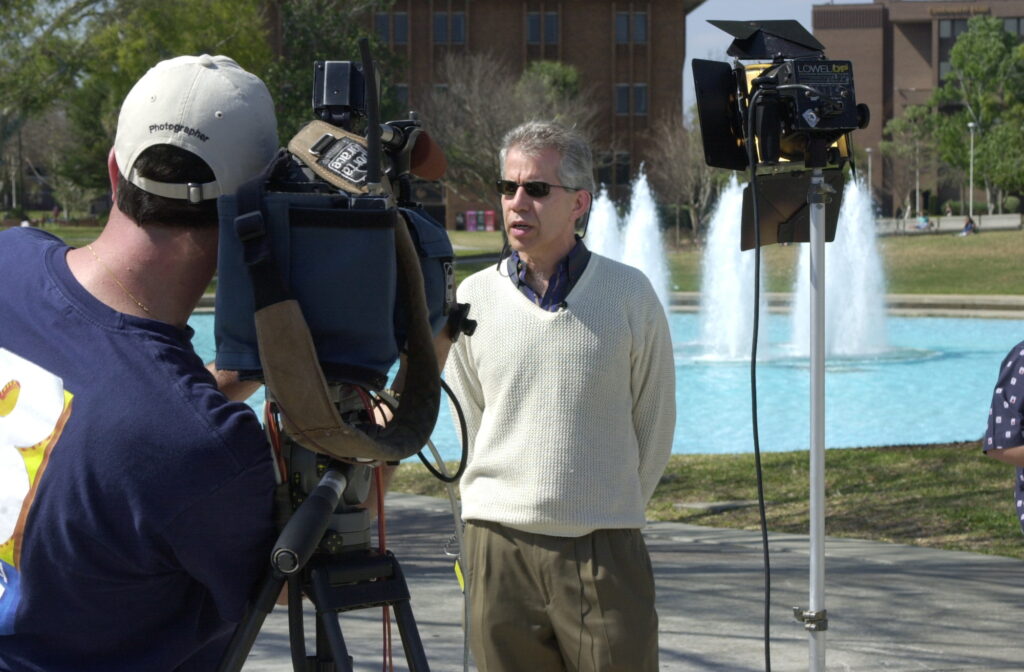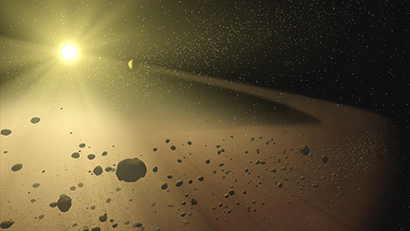
Humberto Campins has studied asteroids and comets for more than three decades and led a team that first discovered water ice on the asteroid 24 Themis in April 2010 and on 65 Cybele in October 2010.
The discoveries support the theory that water may be more common in the solar system than first thought and that perhaps an asteroid brought Earth the early ingredients for life. Dr. Campins is considered an international expert on the topic.
His ability to explain complex science in ways that the average person can understand makes him popular with media. His expertise has been sought out by the New York Times, the BBC, National Geographic, CNN, MSNBC, Fox News, National Public Radio, the Daily Mail , Vancouver Sun, U.S. News & World Report and several U.S. network affiliates among others.
A native of Venezuela, Dr. Campins, is comfortable in English and Spanish and is happy to provide interviews and lectures for all platforms. He has been featured in El Universal, Globovision and La Nueva Espana among other Spanish press.
Today Dr. Campins teaches and conducts research in Orlando, as well as working at observatories around the world including those in Hawaii, the Canary Islands, Nice and Paris. He works on a variety of NASA and the European Space Agency missions. He frequently speaks at international conferences and has authored more than 100 articles.
Dr. Campins has several degrees including a Ph.D. in Planetary Sciences from the University of Arizona. And he has earned several awards over the years including a Fulbright Senior Award, an SAIC Prize for Outstanding Physics and a NASA-Ames Research Center Achievement Award.
His work has made such an impact in the field of planetary sciences that in 1987 the International Astronomical Union named Asteroid 3327 after Campins.
When he is not working, which he thoroughly loves, he enjoys hiking, flamenco and ballroom dancing and spending time with his family.

Soundbites
“What we’ve found suggests that an asteroid like this one may have hit Earth and brought our planet its water.”
Wired Magazine on discovery of water on an asteroid
«It’s interesting that we have detected ice on an asteroid because there have been suggestions that water on Earth came from impacts with many asteroids in Earth’s early history. This detection of water-ice on the surface of an asteroid supports that idea.»
BBC News on discovery of water on asteroid
“This discovery suggests that this region of our solar system contains more water ice than anticipated. And it supports the theory that asteroids may have hit Earth and brought our planet its water and the building blocks for life to form and evolve here.”
The Daily Mail on discovery of water on asteroid
“We’ve been trying to find a planetary system like ours for a long time. If these people have found a Jupiter, I’m delighted. Ideally in the future, we’d like to find planets like Earth capable of supporting life.”
Associated Press on discovery of Jupiter like planet in another solar system
«I believe our findings are linked to the origin of life on Earth.”
CNN

